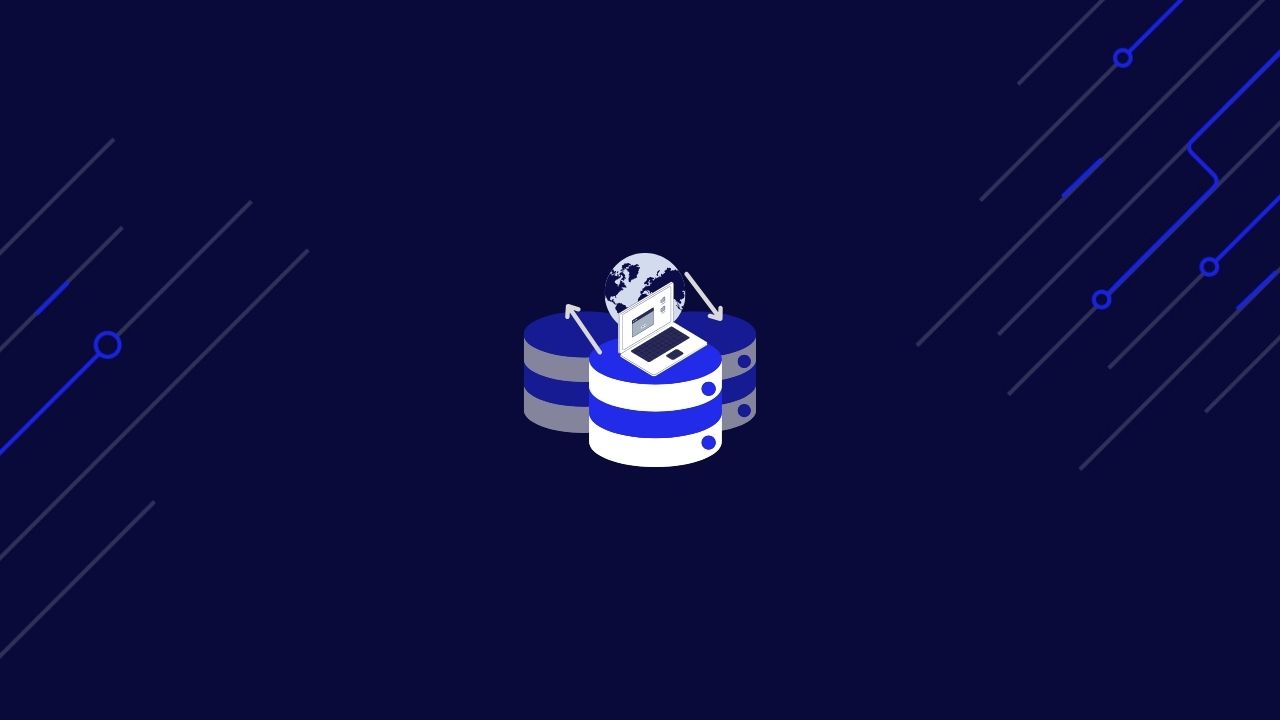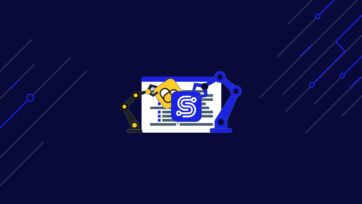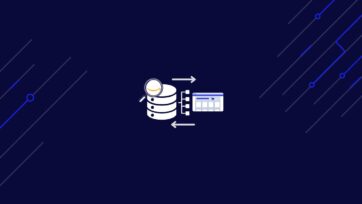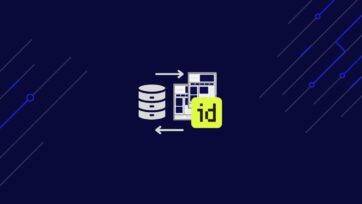Search engine result pages (SERPs) remain critical for businesses aiming to boost their visibility and reach target audiences in 2024 (and beyond) as search engines constantly change their algorithms. Staying competitive in SEO requires more than just optimization — it requires real-time data collection across multiple locations.
Luckily, with SERP scrapers and SEO proxies, businesses can now effortlessly collect keyword rankings, competitor insights, and organic results at scale.
This article reviews the best SERP scraper APIs and proxies available, comparing features like:
- Geotargeting
- CAPTCHA handling
- Proxy management
- Pricing
Whether a small business or a global enterprise, this guide will help you choose the right tool for your multi-location SEO campaigns.
ScraperAPI returns Google search results in JSON or CSV format with a simple API call.
Using SEO Proxies for Multi-Location Campaigns
When users find businesses at the top of search results, they are more likely to click on their links compared to lower ranks. In fact, click-through rates (CTR) decreases the lower a page ranks:
- The first result is 39.8%
- The second result is18.7%
- The third result is 10.2%.
Optimizing for SERP requires deep insights into search behavior, local and multi-location search trends, competitor analysis, and more. By collecting multi-location SERP data, businesses can:
- Track regional keyword trends: Know what keywords are trending in specific locations to optimize your content and SEO strategies for new markets.
- Monitor competitors: Scrape SERPs to see how local competitors are ranking and what tactics they are using.
- Customize marketing campaigns: Tailor your content and advertising efforts based on region-specific search behaviors and preferences.
- Optimize for local SEO: Enabling you to adapt to unique market needs.
TL;DR: Best Rotating SEO Proxies for Multi-Location Campaigns
For those in a hurry, here’s a complete overview of our top picks of the best rotating SEO proxy providers to collect SERP data at a scale:
| Proxy Provider | Ratings | Rankings | Price starts at |
| ScraperAPI | 4.7 |
#1 | $49/month |
| BrightData | 4.6 | #2 | $499+ VAT/month |
| Oxylabs | 4.5 | #3 | $49/month |
| SOAX | 4.6 | #4 | Custom pricing |
| Smartproxy | 4.6 | #5 | $30 + VAT /month |
| NetNut | 4.6 | #7 | $1080/month |
| Webshare | 4.2 |
#8 | $2.99/month |
| Infatica | 4.3 | #9 | $25/month |
Top 10 SEO proxy providers for Multi-Location Campaigns
1. ScraperAPI
ScraperAPI is a comprehensive and versatile SEO scraping tool designed to handle large-scale, multi-location campaigns. ScraperAPI’s Google Search API allows users to collect highly targeted data from Google Search, including keyword rankings, competitors’ ads, job data, and real-time SERP data, like “people also ask” boxes, related searches, and videos.
- ScraperAPI Google endpoints get data parsed into structured JSON, making it ideal for detailed SEO analysis and campaign management.
- ScraperAPI’s built-in scheduler allows businesses to scrape data on autopilot 24/7, using its visual interface or dedicated endpoints for precise scheduling.
- Async Scraper boosts your scraping speed by allowing millions of requests simultaneously while using Google Search Endpoints with better success rates.
With access to over 40 million IP addresses across 50+ countries, ScraperAPI lets you get highly targeted geo-specific SERP data in different languages. This maximizes SEO performance across multiple regions , allowing you to gain insights outside your home market.
Key features
- Pool of 40M+ IP addresses across 50+ countries
- Dedicated Google Search API
- Supports JSON and CSV data exports
- Geotargeting to scrape localized SEO data in multiple languages
- CAPTCHA handling and automatic retries
- Smart proxy rotation and anti-scraping mechanism
- 99.9% uptime with unlimited bandwidth
- Scheduling options to automate large-scale scraping tasks
- Desktop and mobile user agents support device-specific data
Ratings: 4.7
Pros and Cons
| Pros | Cons |
| Near 100% success rate for Google domains | Provides endpoints for Google domains only for now |
| Advanced anti-bot detection and CAPTCHA solving | |
| Returns SERP data in JSON and CSV | |
| Customizable parameters for collecting precise SERP data | |
Localized search data in different languages from 50+ countries |
Pricing
ScraperAPI delivers significantly more value, especially for high-volume scraping tasks. The ScraperAPI Business Plan, at $299/month, provides access to 3 million API credits, more than other providers for the same or lower cost.
Additionally, ScraperAPI provides advanced scheduling features, CAPTCHA handling, and full geotargeting at no additional cost, making it the best option for comprehensive and efficient scraping solutions at scale. Access tools like Async Scraper, Structured Data Endpoint, and DataPipeline in all our plans.
| Plan | Price | # API Credits | SERP Pages Scraped* |
| Hobby | $49 |
100,000 |
4000 |
Startup |
$149 | 1,000,000 | 40,000 |
| Business | $299 | 3,000,000 | 120,000 |
| Enterprise | Custom | >3,000,000 | Custom |
*Requests to Google domains cost 25 API credits.
2. BrightData
BrightData SERP API scrapes search engine results from Google, Bing, Yahoo, and more. Its SERP API converts raw HTML data into structured fields like rankings, links, descriptions, and ratings. It supports city-level geo-targeting to collect localized search data from 195 countries, boosting multi-location SEO campaigns.
However, BrightData is more expensive and demands a significant learning curve compared to other tools in this list, especially ScraperAPI.
Key features
- 195+ geolocations with city-level targeting
- Structured data outputs
- Advanced parsing capabilities
- 99.9% success rate with automatic retries and CAPTCHA solving
- Pay-as-you-go option
Ratings: 4.6
Pros and Cons
| Pros | Cons |
| Provides SERP data from all major search engines | Higher cost for high-volume requests compared to other options |
| Targets city-level SERPs for hyper-localized data collection | Requires additional setup to use advanced features such as asynchronous requests and custom parameters |
| Unlimited concurrent requests | The learning curve for API integration when handling complex SEO campaigns |
| Advanced parsing |
Pricing
While the pay-as-you-go pricing model starts at $3/1k records, the business and premium models are extremely expensive at $999 and $1999/month, making it costly if you need to scrape large amounts of SERP data. Also, the Growth Plan starts at $499/month.
That is $499, with every 1k record costing $2.55. ScraperAPI, at $299/month, offers 1k successful records for $2.49.
| ScraperAPI Business Plan | BrightData Business Plan |
| $2.49/1k records | $2.55/1k records |
| All Geotargeting | Worldwide geo-distribution |
| JS rendering | – |
| Automatic CAPTCHA handling | – |
| Automatic IP rotation | Need to configure it using their proxy manager |
| $299/month | $499/month |
3. Oxylabs
Oxylabs SERP Scraper API scrapes search engines like Google, Bing, Baidu, and Yandex. Oxylabs offers city-level geo-targeting across 195 countries, standing out for its ability to target areas using coordinates with ML-driven proxy management.
Like other leading solutions, Oxylabs provides outputs in raw HTML, parsed JSON, or CSV for collecting various SERP features, including featured snippets and related searches.
Just like BrightData, its advanced features are more expensive and require a steeper learning curve, making it difficult for those who prefer ease of use over granular control.
Key Features
- Geo-targeting in 195+ countries
- Proxy management with ML-driven proxy selection
- Headless browser support
- AI-driven fingerprinting bypassing
- CAPTCHA handling and automatic retries
Ratings: 4.5
Pros and Cons
| Pros | Cons |
| Provides 99%+ success rate for search data retrieval | No playground for testing configurations before full deployment |
| Coordinate-level geo-targeting | The learning curve for integrating complex SEO campaigns |
| ML-driven IP selection and rotation | Dedicated parsers are limited to Google, restricting JSON format to certain search engines |
| Automated scheduling and custom parsing logic |
Pricing
Oxylabs’ advanced plan costs $249/month. While this might seem a little cost-effective, Oxylabs only returns 104,000 results at this price point, while with ScraperAPI ($299/month), you get 120000 successful results. So, comparatively, the extra $50 here is justified with better and more reliable results.
By default, ScraperAPI has a rate limit of 100; in Oxylabs, it’s just 30. So, ScraperAPI allows users to make multiple API requests simultaneously, which is important for enhancing the speed and efficiency of data extraction.
| ScraperAPI Business Plan | Oxylabs Business Plan |
| 3,000,000 API credits | N/A |
| 120,000 successful results | 104,000 results |
| 100 concurrent threads | 30 concurrent threads |
| All Geotargeting | Worldwide geo-distribution |
| Ultra premium proxies | – |
4. SOAX
SOAX SERP API scrapes data from search engines such as Google, Bing, Yahoo, Naver, Yandex, DuckDuckGo, and Baidu in JSON and HTML formats.
With 191 million IPs in 195 locations and geo-targeting options for country, city, and ASN-level data collection, SOAX is capable of handling high-traffic scraping needs efficiently.
One drawback is that you must commit to a monthly plan to use the service. No free trial or demo is available for testing.
Key Features
- Geo-targeting in 195 locations
- Extract data from all markup points or select specific elements and tags
- Headless scraping for JavaScript-heavy pages
- Integrated browser fingerprint technology to mimic real user traffic
- Automatic proxy rotation with CAPTCHA bypass
- JSON and HTML output formats
- Near 100% success rate and 99.95% uptime
Ratings: 4.6
Pros and Cons
| Pros | Cons |
| Detailed geo-targeting for | Higher starting price compared to some competitors |
| Fastest response time | No pay-as-you-go option |
| Easy-to-use interface | Usage statistics are basic |
| Flexible scraping options for multiple search engines |
Pricing
You’ll need to contact sales to get pricing for a SERP data extraction project, as they don’t offer any pricing information on their site for their API.
5. Smartproxy
Smartproxy SERP Scraping API collects data from search engine platforms like Google, Bing, Baidu, and Yandex. Its playground feature sets it apart, which allows users to test configurations before deployment – similar to ScraperAPI’s.
Like others in this list, Smartproxy also allows for country, city, and coordinate-level geo-targeting from 195+ locations.
Key Features
- Geo-targeting from 195+ locations
- JSON, HTML, and table format outputs
- 90%+ success rate
- Playground for testing configurations before full deployment
- Integrated browser fingerprints to combat anti-bot technology
- Built-in proxy rotation to avoid CAPTCHAs or IP blocks
Ratings: 4.6
Pros and Cons
| Pros | Cons |
| User-friendly interface with a testing playground | Not suitable for scraping high volumes of data |
| Lower entry price, making it cost-effective for small-scale projects | |
| Build-in scheduler |
Pricing
Smartproxy’s pricing starts at $300/month for 250K requests, making it ideal for those who need to handle fewer requests and work on a limited budget.
If you’re handling high volumes of requests or need advanced features like JS rendering and CAPTCHA handling, ScraperAPI provides the best balance of features and cost. It’s more affordable than BrightData for large-scale operations and offers more features than Smartproxy.
| Provider | Pricing per 1K Requests | Monthly Cost (Starting) |
| ScraperAPI | $2.49/1K requests | $299/month |
| BrightData | $2.55/1K requests | $499/month |
| Smartproxy | $1.20 – $2.00/1K requests | $300 for 250K requests |
6. NetNut
NetNut’s SERP Scraper API for Google lets you extract SERP data from any search engine.
With over 200 ISP partners and 100 billion monthly routed requests, NetNut provides an extensive network with granular geo-targeting down to the city and state levels with different language support.
Like ScraperAPI and other providers here, you only pay for successful requests. However, the key drawback is the high pricing, which doesn’t suit the majority of enterprises.
Key Features
- City/state-level targeting from 200+ ISP partners
- User-friendly dashboard for proxy management, analytics, and customizable settings
- Automate SERP data retrieval and analysis
- Built-in proxy rotation to prevent IP blocks
- Returns JSON and HTML formats
- Test API configurations and proxy settings before live deployment
Ratings: 4.6
Pros and Cons
| Pros | Cons |
| Pay only for successful requests | No support for asynchronous requests, which may slow down large-scale operations |
| Built-in proxy rotation | |
| Allows testing before deployment | |
| User-friendly dashboard for easy setup and management |
Pricing
NetNut’s pricing starts at $1080/month for 1 million requests, which equates to $1.08/1K requests; the high starting price makes it less accessible for smaller businesses or projects.
In contrast, ScraperAPI offers a more flexible approach. Its lower entry price of $299/month for 3 million API credits makes it a more affordable solution for small—to mid-sized projects. After you require more than 3M API credits, you will get a custom enterprise plan. This means the price per 1M requests will be heavily discounted, getting a better deal than most other tools – including NetNut.
This will also include a dedicated account manager, 100+ concurrent threads, and a Slack support channel for fast troubleshooting.
ScraperAPI offers more flexibility and affordability for smaller projects while providing access to premium features like automatic CAPTCHA handling and proxy rotation.

7. Infatica
Infatica SERP Scraper extracts data from Google, Bing, Yahoo, and other search engines. Like ScraperAPI, Infatica’s SERP Scraper offers customizable queries and lets users apply filters, set parameters, and use proxies to ensure more accurate data extraction.
Despite these features, Infatica falls behind as it lacks more extensive global coverage and additional advanced features, such as asynchronous requests, than competitors. Users also complain about Infatica’s steep learning curve due to less clear documentation.
Key Features
- Avoid IP bans and CAPTCHAs with proxy rotation
- Access dynamic web content
- Custom headers and sessions to mimic any browser or device
- Save data in CSV, XLSX, and JSON formats
- HTTP/SOCKS protocols for enhanced security
Ratings: 4.3
Pros and cons
| Pros | Cons |
| Customizable queries and filtering options | A smaller pool of just 10 million IPs which may lead to more frequent blocks by websites |
| Allows scraping of dynamic web content through JavaScript rendering | Poor documentation causes challenging setup and usage, requiring additional resources |
| Custom headers and sessions |
Pricing
While Infatica provides essential scraping capabilities at $240/month, its limited geotargeting, only available to US and EU, is a major drawback.
| Plan | Price | # API Credits | SERP Pages Scraped* |
| Small | $25 / month |
250,000 |
12,500 |
Medium |
$90 / month | 1,000,000 | 50,000 |
| Large | $240 / month | 3,000,000 | 150,000 |
| Enterprise | From $1000 / month | Custom | Custom |

8. Webshare
Webshare is a relatively new but growing player in the proxy market. Although it doesn’t offer any particular feature to scrape SERP data, its premium proxies (especially residential proxies) might be a great choice if you’re solely looking for a proxy pool.
Key Features
- Global coverage in 50+ countries
- Flexible pricing with a free plan (10 proxies) and self-service platform
- SOCKS5 and HTTP(S) protocols
- Geotargeting
Ratings: 4.2
Pros and Cons
| Pros | Cons |
| Flexible pricing with a free option to start with | No dedicated SERP Scraper API |
| Beginner-friendly platform with easy, extensive self-service features | No city, state, or ASN-level precision |
| Secure protocols (SOCKS5, HTTP(S)) ensure data privacy | No 24/7 customer support |
Pricing
Webshare operates on a bandwidth-based pricing model, where the cost depends on how much data you consume while scraping. This can be unpredictable, especially for projects where scraping results in large amounts of data or unsuccessful requests may consume bandwidth without returning valuable information.
ScraperAPI pricing stays the same, allowing you to scale your data pipelines without surprises in your bill.
| Comparison | ScraperAPI | Webshare |
| Pricing Model | Pay per successful request | Pay per bandwidth consumed |
| Cost Control | Highly predictable | Unpredictable based on bandwidth |
| Failed Requests | No charge for failed requests | Bandwidth wasted on failures |
| CAPTCHA Handling | Automatic (minimizes failed scrapes) | Requires manual setup |
| Ideal For | Large SERP scraping projects and enterprise teams | Teams looking for a proxy pool without additional features |

Conclusion
We hope this comparison of the best rotating SEO proxies helps you choose the right tool for your multi-location SEO campaigns. Whether you prioritize budget-friendly options or need advanced features, there’s a solution to meet your needs. For more precise and automated scraping with minimal setup, ScraperAPI remains a top choice for structured data and advanced features.
Need more than 120,000 search results per month? Contact our sales team for a custom enterprise plan and enjoy all its benefits:
- 100+ concurrent threads
- Dedicated account manager
- Dedicated Slack support channel
Frequently Asked Questions
How to choose a proxy provider?
Whether it’s web scraping, SEO monitoring, or accessing geo-restricted content, look for a provider with a large proxy pool, strong geo-targeting options, and high uptime for reliability.
Evaluate additional features like automatic IP rotation, CAPTCHA handling, and auto parsing to reduce development time and data cleaning. Especially for large-scale projects, speed, and scalability are key factors, so make sure to choose a tool that’s able to handle large-volume requests – a good choice would be one with Asynchronous capabilities to speed up the process.
What are SEO proxies?
SEO proxies are proxies designed for search engine tasks like scraping search engine results, tracking keyword rankings, and monitoring competitors. They help avoid blocks by rotating IPs and providing geotargeting capabilities to collect accurate, localized data for SEO purposes. These proxies ensure reliable, anonymous data collection from search engines while bypassing their advanced anti-scraping measures.
What are the best types of proxies to collect SERP data?
The best type would be residential and mobile proxies because they are assigned to real residential and mobile users. Proxy providers let you route your request through these devices to mimic real organic traffic, making it harder for bot blockers to recognize your scrapers.




